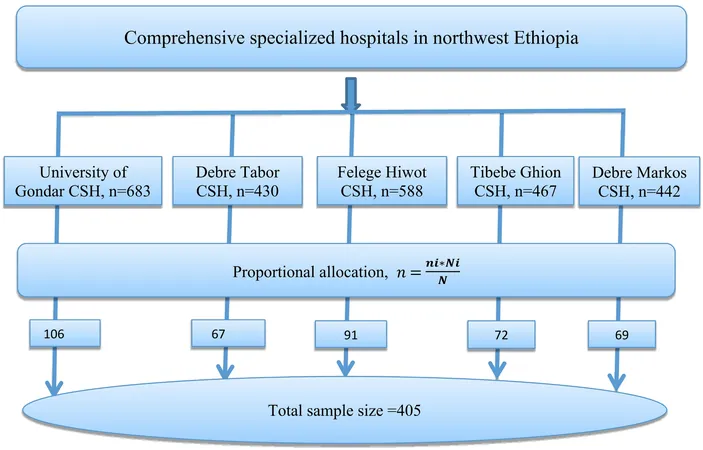
Unlocking the Genetic Melody: Are You Wired to Feel Music Deeper?
2025-04-16
Author: John Tan
Unveiling the Genetic Connection to Music Emotion
Have you ever felt goosebumps while listening to your favorite track, while a friend remains completely unmoved? A groundbreaking study sheds light on why some individuals connect with music on a more profound level than others, hinting that our genetic makeup plays a significant role.
The Study: Music Enjoyment and Genetics
Published in *Nature Communications*, researchers discovered that a staggering 54% of the differences in music enjoyment can be traced back to genetic factors. The remaining influences stem from environmental aspects, such as growing up in a musically enriched home or personal experiences with music.
Mitchell Hutchings, an associate professor at Florida Atlantic University, expressed excitement over the findings: "This study explores something many of us in music have long suspected—some people are just wired to connect with music on a deeper level."
Digging Deeper: The Data
To explore this genetic connection, Giacomo Bignardi and his team at the Max Planck Institute analyzed data from over 9,000 twins aged 37 to 64, sourced from the Swedish Twin Registry. By comparing identical twins, who share nearly identical DNA, to fraternal twins, they were able to estimate the genetic influence on music enjoyment.
Their findings were clear: identical twins exhibited over double the similarity in music enjoyment compared to non-identical twins, underscoring the significant role of genetics.
Measuring the Beat: The Questionnaire
Participants' music enjoyment was gauged using the Barcelona Music Reward Questionnaire, where individuals rated their agreement with statements like, "Music calms and relaxes me," on a scale of 1 to 5. Those who shared a deeper connection to music scored significantly higher.
Limitations: The Twin Conundrum
However, the study isn't without its caveats. It assumed that twins have the same level of musical exposure, which isn't always the case. One twin might actively seek out musical activities, skewing results.
Moreover, the population was quite homogeneous, raising questions about whether these genetic influences hold true across cultures. Professor Michelle Luciano of the University of Edinburgh emphasized the need for more diverse studies to validate these findings globally.
The Bigger Picture: Musical Skills vs. Genetic Influence
The research also measured participants' ability to distinguish melodies, rhythms, and pitches, linking certain genetic factors to musical skills. Surprisingly, about 70% of genetic influence on music enjoyment wasn’t related to musical skills or even a general reward sensitivity.
Hutchings echoed this observation: "I've seen students who aren't particularly driven by external rewards but come alive when listening to music. It's fascinating how deeply rooted this connection can be."
The Future of Music Research
Looking toward the future, the researchers hope these findings will inspire more inquiries into the evolutionary origins of music enjoyment and the brain pathways that connect music with positive emotions. So, the next time a song sends shivers down your spine, remember: your genes might just be singing in harmony.


 Brasil (PT)
Brasil (PT)
 Canada (EN)
Canada (EN)
 Chile (ES)
Chile (ES)
 Česko (CS)
Česko (CS)
 대한민국 (KO)
대한민국 (KO)
 España (ES)
España (ES)
 France (FR)
France (FR)
 Hong Kong (EN)
Hong Kong (EN)
 Italia (IT)
Italia (IT)
 日本 (JA)
日本 (JA)
 Magyarország (HU)
Magyarország (HU)
 Norge (NO)
Norge (NO)
 Polska (PL)
Polska (PL)
 Schweiz (DE)
Schweiz (DE)
 Singapore (EN)
Singapore (EN)
 Sverige (SV)
Sverige (SV)
 Suomi (FI)
Suomi (FI)
 Türkiye (TR)
Türkiye (TR)
 الإمارات العربية المتحدة (AR)
الإمارات العربية المتحدة (AR)